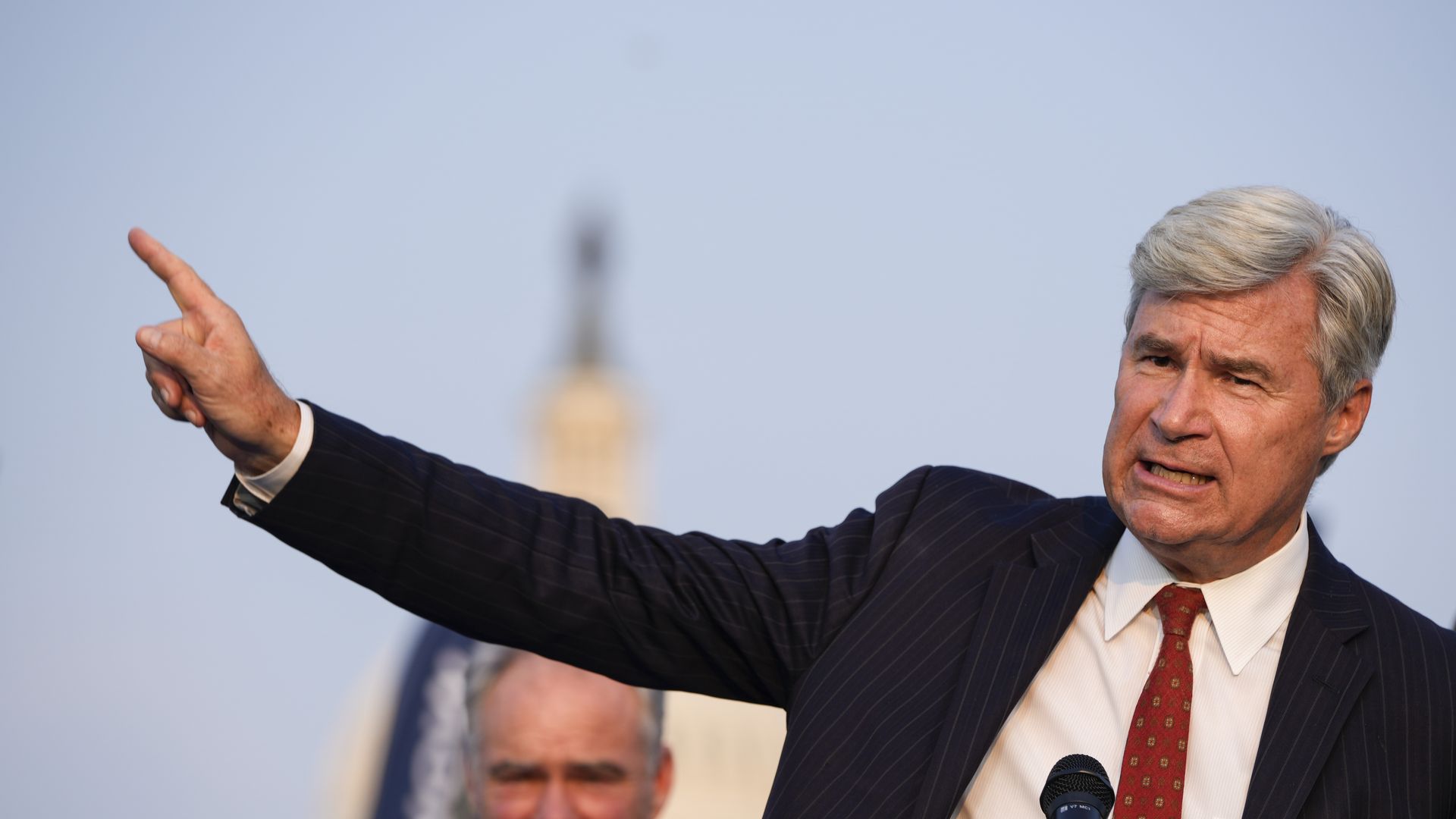Police lawsuit bill may renew reform talks
Add Axios as your preferred source to
see more of our stories on Google.

Sen. Sheldon Whitehouse (D-R.I.). Photo: Drew Angerer/Getty Images
Sen. Sheldon Whitehouse (D-R.I.) has filed legislation advocates hope may offer an opening to resume stalled bipartisan talks over police reform.
Why it matters: It would allow excessive force lawsuits against police departments, agencies and the federal government — but not individual officers, a stumbling block in earlier efforts.
- Sen. Tim Scott of South Carolina, a Republican point person on reform talks, said months ago he favored “making the employer responsible for the actions of the employee." But he has not signed on as a co-sponsor and his office did not immediately respond to a request for comment.
Details: Whitehouse's bill would provide uniform measures for victims to sue state and local governments and federal agencies for excessive force.
- Currently, state and municipal laws vary over whether individuals can pursue civil action for constitutional rights violations by officers.
- Individuals cannot sue a federal officer for monetary damages unless specifically authorized under a statute.
What they're saying: “As chain-of-command organizations, police departments decide how to train, supervise and discipline their personnel. That means departments ought to bear responsibility for the behavior of their officers," Whitehouse told Axios.
- Holding employers liable for the actions of their employees is “a time-tested and proven way to encourage responsible management."
The intrigue: Qualified immunity — protection for officers against individual lawsuits — was a major source of disagreement between Democrats and Republicans.
- Scott said in a statement in May, "The real question is, how do we change the culture of policing? I think we do that by making the employer responsible for the actions of the employee."
- Police unions, like the National Fraternal Order of Police, have said ending qualified immunity was a non-starter.
- The group has not taken a stand on Whitehouse's proposal. FOP spokeswoman Jessica Cahill told Axios, "We are analyzing the bill and plan to talk with Sen. Whitehouse about it.”
